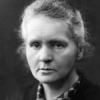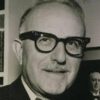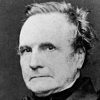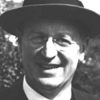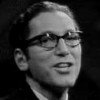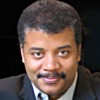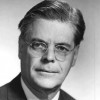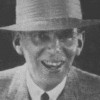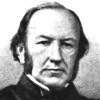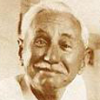Study has always been for me the sovereign remedy against life’s unpleasantness, since I have never experienced any sorrow that an hour’s reading did not eliminate.
[L’étude a été pour moi le souverain remède contre les dégoûts de la vie, n’ayant jamais eu de chagrin qu’une heure de lecture n’ait dissipé.]
Charles-Lewis de Secondat, Baron de Montesquieu (1689-1755) French political philosopher
Pensées [Thoughts], # 213 (1720-1755) [tr. Clark (2012)]
(Source)
(Source (French)). Alternate translations:
Study has been my sovereign remedy against the worries of life. I have never had a care that an hour's reading could not dispel.
[Source (1826)]
Study is a sovereign remedy against the troubles of life; there is no vexation which an hour's reading cannot mitigate.
[E.g. (1877)]
Study has been to me a sovereign remedy against the vexations of life, having never had an annoyance that one hour's reading did not dissipate.
[E.g. (1905)]
Study has been my sovereign remedy against life's disappointment; I have never known any distress that an hour's reading did not relieve.
[ed. Guterman (1963)]
Quotations about:
research
Note not all quotations have been tagged, so Search may find additional quotes on this topic.
If we turn away from knowledge and truth, we will not succeed. If we believe the worst and suspect the best, we alone will suffer. If we deny our progress, if we are against all of it, if we tear down our accomplishments, we will fill the world with sorrow, and we will blemish our own name with shame.
But if we are courageous and farsighted and farseeing, if we have no fear of the truth, if we seek only after light, then we and our children and our children’s children shall know the greatness of this wonderful, beautiful land we call America.Lyndon B. Johnson (1908-1973) American politician, educator, US President (1963-69)
Speech (1964-09-28), Convocation, Brown University
(Source)
On government support of higher education, research, and scholarship.
When we look forward and try to project what may come out of a development, we are always wrong, because the by-products sometimes become far more important than the primary thing you started out to accomplish. Nevertheless, unintelligent motion is a great deal more important in research than intelligent standing still.
Charles F. Kettering (1876-1958) American inventor, engineer, researcher, businessman
“250 at Luncheon Honor Kettering,” New York Times (1936-11-11)
(Source)
We must not forget that when radium was discovered no one knew that it would prove useful in hospitals. The work was one of pure science. And this is a proof that scientific work must not be considered from the point of view of the direct usefulness of it. It must be done for itself, for the beauty of science, and then there is always the chance that a scientific discovery may become like the radium a benefit for humanity.
Marie Curie (1867-1934) Polish-French physicist and chemist [b. Maria Salomea Skłodowska]
“The Discovery of Radium,” lecture, Vassar College (1921-05-14)
(Source)
The biographer does not trust his witnesses, living or dead. He may drip with the milk of human kindness, believe everything that his wife and his friends and his children tell him, enjoy his neighbors and embrace the universe — but in the workshop he must be as ruthless as a board meeting smelling out embezzlement, as suspicious as a secret agent riding the Simplon-Orient Express, as cold-eyed as a pawnbroker viewing a leaky concertina. With no respect for human dignity, he plays off his witnesses one against the other, snoops for additional information to confront them with, probes their prejudices and their pride, checks their reliability against their self-interest, thinks the worst until he is permitted to think better.
Paul Murray Kendall (1911-1973) American academic and historian
“Walking the Boundaries,” The Art of Biography (1965)
(Source)
It is difficult to pronounce on the opinion of the ministers of our Church as a body: one portion of them, by far the least informed, protests against anything which can advance the honour and the interests of science, because, in their limited and mistaken view, science is adverse to religion. This is not the place to argue that great question. It is sufficient to remark, that the best-informed and most enlightened men of all creeds and pursuits, agree that truth can never damage truth, and that every truth is allied indissolubly by chains more or less circuitous with all other truths; whilst error, at every step we make in its diffusion, becomes not only wider apart and more discordant from all truths, but has also the additional chance of destruction from all rival errors.
Charles Babbage (1791-1871) English mathematician, computer pioneer, philosopher
The Exposition of 1851: Views Of The Industry, The Science, and the Government Of England, ch. 17 (1851)
(Source)
The best way to get the right answer on the Internet is not to ask a question; it’s to post the wrong answer.
Howard G. "Ward" Cunningham (b. 1949) American computer scientist
“Cunningham’s Law”
(Source)
Cunningham himself denies having said this. It was attributed to him (and so named) by Steven McGeady in the early 1980s.
Ideas come when we do not expect them, and not when we are brooding and searching at our desks. Yet ideas would certainly not come to mind had we not brooded at our desks and searched for answers with passionate devotion.
Max Weber (1864-1920) German sociologist, philosopher, political economist [Maximilian Karl Emil Weber]
“Science as a Vocation [Wissenscahft als Beruf],” Speech, Munich University (1918) [tr. Gerth & Mills (1948)]
(Source)
Alt. trans.:
- "Ideas come when they are least expected, rather than while you are racking your brains at your desk. But, by the same token, they would not have made their appearance if we had not spent many hours pondering at our desks or brooding passionately over the problems facing us." [tr. Livingstone]
- "[Ideas] come, at any rate, when one does not expect them, not while racking one's brains and pondering at one's desk. Of course, the ideas would not have occurred to us without our having been through the state of racking our brains and being engaged in impassioned questioning." [tr. Wells (2018)]
One of the greatest of joys known to man is to take such a flight into ignorance in search of knowledge. The great pleasure of ignorance is, after all, the pleasure of asking questions. The man who has lost this pleasure or exchanged it for the pleasure of dogma, which is the pleasure of answering, is already beginning to stiffen.
Robert Lynd (1892-1970) American sociologist [Robert Slaughton Lynd]
The Pleasure of Ignorance, ch. 1 (1921)
(Source)
The flip side … the flip side is that scientific research is a bottomless money pit. You can approximate Doing Science to standing on the Crack of Doom throwing banknotes down it by the double-handful, in the hope that if you choke the volcano with enough paper it will cough up the One Ring. Unless you’re doing pure mathematics or philosophy, of course, in which case it’s HB pencils and ruled A4 notepads all the way down.
Do you remember the ’60s and ’70s? You didn’t have to go more than a week before there was an article in Life magazine — “The Home of Tomorrow,” “The City of Tomorrow,” “Transportation of Tomorrow.” All that ended. In the 1970s, after we stopped going to the Moon, it all ended. We stopped dreaming. And so I worry that decisions that Congress makes doesn’t factor in the consequences of those decisions on tomorrow. Tomorrow’s gone. They’re playing for the quarterly report, they’re playing for the next election cycle, and that is mortgaging the actual future of this nation, and the rest of the world is going to pass us by.
Neil deGrasse Tyson (b. 1958) American astrophysicist, author, orator
Real Time with Bill Maher, Ep. 223 (5 Aug 2011)
(Source)
Plagiarize,
Let no one else’s work evade your eyes,
Remember why the good Lord made your eyes,
So don’t shade your eyes,
But plagiarize, plagiarize, plagiarize —
Only be sure always to call it, please, “research”.
The ink of the scholar is more sacred than the blood of the martyr.
Muhammad (570-632) Arabian merchant, prophet, founder of Islam [Mohammed]
Hadith
(Source)
In Syed Ameer Ali, A Critical Examination of the Life and Teachings of Mohammed (1873), cited to The Kitâb-ul-Mustarif, ch. 2, and The Mishkât, Bk 22, ch. 18, pt. 3 (from Abu Hurairah)
PASTORE: Is there anything connected in the hopes of this accelerator that in any way involves the security of this country?
WILSON: No sir; I do not believe so.
PASTORE: Nothing at all?
WILSON: Nothing at all.
PASTORE: It has no value in that respect?
WILSON: It only has to do with the respect with which we regard one another, the dignity of men, our love of culture. It has to do with those things. It has nothing to do with the military, I am sorry.
PASTORE: Don’t be sorry for it.
WILSON: I am not, but I cannot in honesty say it has any such application.
PASTORE: Is there anything here that projects us in a position of being competitive with the Russians, with regard to this race?
WILSON: Only from a long-range point of view, of a developing technology. Otherwise, it has to do with: Are we good painters, good sculptors, great poets? I mean all the things that we really venerate and honor in our country and are patriotic about. In that sense, this new knowledge has all to do with honor and country but it has nothing to do directly with defending our country, except to make it worth defending.
Robert R. Wilson (1914-2000) American physicist
Testimony, Joint Committee on Atomic Energy (17 Apr 1969)
Dialog between Senator John Pastore (D-RI) and Wilson regarding the funding for FY 1970 of Fermilab's first particle accelerator. Pastore was actually a proponent of Fermilab, but was seeking arguments to use with some of his colleagues.
The exchange is frequently portrayed as more hostile, and Wilson's answer is often paraphrased / elided as: "It has only to do with the respect with which we regard one another, the dignity of men, our love of culture. It has to do with are we good painters, good sculptors, great poets? I mean all the things we really venerate in our country and are patriotic about. It has nothing to do directly with defending our country except to make it worth defending."
See here for more background.
Keep on going, and chances are you will stumble on something, perhaps when you are least expecting it. I never heard of anyone stumbling on something sitting down.
Charles F. Kettering (1876-1958) American inventor, engineer, researcher, businessman
(Attributed)
Variant:
"Keep on going and the chances are you will stumble on something, perhaps when you are least expecting it. I have never heard of anyone stumbling on something sitting down."
I am unable to find this precise phrase in Kettering's writings or primary writings about him. However, this appears to have been part of a common set of phrases he used, which indicates either it is accurate or a paraphrase of one of them:
Accomplishment has been an accident as a rule. Nobody ever stumbled while he was standing still. You only stumble when you are moving. So we always had it a rule in our organization when we lacked intelligence we speeded up motion, because the chances of stumbling infinitely increased.
"250 at Luncheon Honor Kettering," New York Times (1936-11-11)
Nobody ever found anything while sitting down. So, Q.E.D., don't be afraid to stumble.
“Don’t Be Afraid to Stumble,” The Rotarian (1952-01)
Every great study is not only an end in itself, but also a means of creating and sustaining a lofty habit of the mind.
Bertrand Russell (1872-1970) English mathematician and philosopher
“The Study of Mathematics,” Mysticism and Logic (1918)
(Source)
Ardent desire for knowledge, in fact, is the one motive attracting and supporting investigators in their efforts; and just this knowledge, really grasped and yet always flying before them, becomes at once their sole torment and their sole happiness …. A man of science rises ever, in seeking truth; and if he never finds it in its wholeness, he discovers nevertheless very significant fragments; and these fragments of universal truth are precisely what constitutes science.
Crafty men condemn studies; simple men admire them; and wise men use them.
Francis Bacon (1561-1626) English philosopher, scientist, author, statesman
“Of Studies,” Essays, No. 50 (1625)
(Source)
Be sure of the fact before you lose time in searching for a cause.
James Burgh (1714-1775) British politician and writer
The Dignity of Human Nature, Sec. 5 “Miscellaneous Thoughts on Prudence in Conversation” (1754)
(Source)
You can “just listen” to the Brahms violin concerto and enjoy it keenly. But if you read about Brahms’ life, you appreciate it more. And, if you’ve listened to recordings of it, you will appreciate it ten times as much.
Jascha Heifetz (1901-1987) Lithuanian-American violinist
(Unsourced)
Quoted on his official web page.
Think before you speak. Read before you think. This will give you something to think about that you didn’t make up yourself — a wise move at any age, but most especially at seventeen, when you are in the greatest danger of coming to annoying conclusions.
A Scholar is a man with this inconvenience, that when you ask him his opinion on any matter, he must go home and look up his manuscripts to know.
To avoid the various foolish opinions to which mankind are prone, no superhuman genius is required. A few simple rules will keep you, not from all error, but from silly error. If the matter is one that can be settled by observation, make the observation yourself. Aristotle could have avoided the mistake of thinking that women have fewer teeth than men, by the simple device of asking Mrs. Aristotle to keep her mouth open while he counted. He did not do so because he thought he knew. Thinking that you know when in fact you don’t is a fatal mistake, to which we are all prone. I believe myself that hedgehogs eat black beetles, because I have been told that they do; but if I were writing a book on the habits of hedgehogs, I should not commit myself until I had seen one enjoying this unappetizing diet.
Man prefers to believe what he wants to be true. He rejects what is difficult because he is too impatient to make the investigation; he rejects sensible ideas, because they limit his hopes; he rejects the deeper truths of nature because of superstition; he rejects the light of experience, because he is arrogant and fastidious, believing that the mind should not be seen to be spending its time on mean, unstable things; and he rejects anything unorthodox because of common opinion. In short, emotion marks and stains the understanding in countless ways which are sometimes impossible to perceive.
[Quod enim mavult homo verum esse, id potius credit. Rejicit itaque difficilia, ob inquirendi impatientiam; sobria, quia coarctant spem; altiora naturae, propter superstitionem; lumen experientiae, propter arrogantiam et fastum, ne videatur mens versari in vilibus et fluxis; paradoxa, propter opinionem vulgi; denique innumeris modis, iisque interdum imperceptibilibus, affectus intellectum imbuit et inficit.]
Francis Bacon (1561-1626) English philosopher, scientist, author, statesman
Instauratio Magna [The Great Instauration], Part 2 “Novum Organum [The New Organon],” Book 1, Aphorism # 49 (1620) [tr. Silverthorne (2000)]
(Source)
See Demosthenes.
(Source (Latin)). Alternate translations:
For man always believes more readily that which he prefers. He, therefore, rejects difficulties for want of patience in investigation; sobriety, because it limits his hope; the depths of nature, from superstition; the light of experiment, from arrogance and pride, lest his mind should appear to be occupied with common and varying objects; paradoxes, from a fear of the opinion of the vulgar; in short, his feelings imbue and corrupt his understanding in innumerable and sometimes imperceptible ways.
[tr. Wood (1831)]
For what a man had rather were true he more readily believes. Therefore he rejects difficult things from impatience of research; sober things, because they narrow hope; the deeper things of nature, from superstition; the light of experience, from arrogance and pride, lest his mind should seem to be occupied with things mean and transitory; things not commonly believed, out of deference to the opinion of the vulgar. Numberless in short are the ways, and sometimes imperceptible, in which the affections colour and infect the understanding.
[tr. Spedding (1858)]
For man more readily believes what he wishes to be true. And so it rejects difficult things, from impatience of inquiry; -- sober things, because they narrow hope; -- the deeper thigns of Nature, from superstition; -- the light of experience, from arrogance and disdain, lest the mind should seem to be occupied with worthless and changing matters; -- paradoxes, from a fear of the opinion of the vulgar: -- in short, the affections enter and corrupt the intellect in innumerable ways, and these sometimes imperceptible.
[tr. Johnson (1859)]
For a man is more likely to believe something if he would like it to be true. Therefore he rejectsIn short, there are countless ways in which, sometimes imperceptibly, a person’s likings colour and infect his intellect.
- difficult things because he hasn’t the patience to research them,
- sober and prudent things because they narrow hope,
- the deeper things of nature, from superstition,
- the light that experiments can cast, from arrogance and pride (not wanting people to think his mind was occupied with trivial things),
- surprising truths, out of deference to the opinion of the vulgar.
[tr. Bennett (2017)]
The important thing is not to stop questioning. Curiosity has its own reason for existing. One cannot help but be in awe when he contemplates the mysteries of eternity, of life, of the marvelous structure of reality. It is enough if one tries merely to comprehend a little of this mystery every day.
Albert Einstein (1879-1955) German-American physicist
Memoirs of William Miller, quoted in Life (2 May 1955)
(Source)
For there is no comparison between that which we may lose by not trying and by not succeeding; since by not trying we throw away the chance of an immense good; by not succeeding we only incur the loss of a little human labour. But as it is, it appears to me from what has been said, and also from what has been left unsaid, that there is hope enough and to spare, not only to make a bold man try, but also to make a sober-minded and wise man believe.
[Non enim res pari periculo non tentatur, et no succedit; cum in illo ingentis boni, in hoc exiguae humanae operae, jactura vertatur. Verum ex dictis, atque etiam ex non dictis, visum est nobis spei abunde subesse, non tantum homini strenuo ad experiendum, sed etiam prudenti et sobrio ad credendum.]
Francis Bacon (1561-1626) English philosopher, scientist, author, statesman
Instauratio Magna, Part 2 “Novum Organum” [The New Organon],” Book 1, Aphorism # 114 (1620) [tr. Spedding (1858)]
(Source)
(Source (Latin)). Alternate translations:
For the risk attending want of success is not to be compared with that of neglecting the attempt; the former is attended with the loss of a little human labour, the latter with that of an immense benefit. For these and other reasons, it appears to us that there is abundant ground to hope, and to induce not only those who are sanguine to make experiment, but even those who are cautious and sober to give their assent.
[tr. Wood (1831)]
For it is not a case where there is an equal risk in not trying and not succeeding; since in the former instance we risk a huge advantage; in the latter a little human labour is thrown away. But from what has been said, and also from what has not been said, it seems to us that there is abundant ground of hope, not only to justify a stout-hearted man in trying, but even a prodent and sober man in believing.
[tr. Johnson (1859)]
For the danger of not trying and the danger of not succeeding are not equal, since the former risks the loss of great good, the latter of a little human effort. But from what we have said and from other things which we have not said, it has seemed to us that we have abundance of hope, whether we are men who press forward to meet new experiences, or whether we are careful and slow to believe.
[tr. Silverthorne (2000) "The Great Renewal"]
The loss that may come from not trying is much greater than what may come from trying and not succeeding: by not trying we throw away the chance of an immense good; by not succeeding we only incur the loss of a little human labour. But from what I have said (and from some things that I haven’t said) it seems to me that there is more than enough hope not only to get a vigorous man to try but also to make a sober-minded and wise man believe that he will succeed.
[tr. Bennett (2017)]
Inquiry is fatal to certainty.
William James (Will) Durant (1885-1981) American historian, teacher, philosopher
The Age of Faith, ch. 38 “The Age of Romance” (1950)
(Source)




